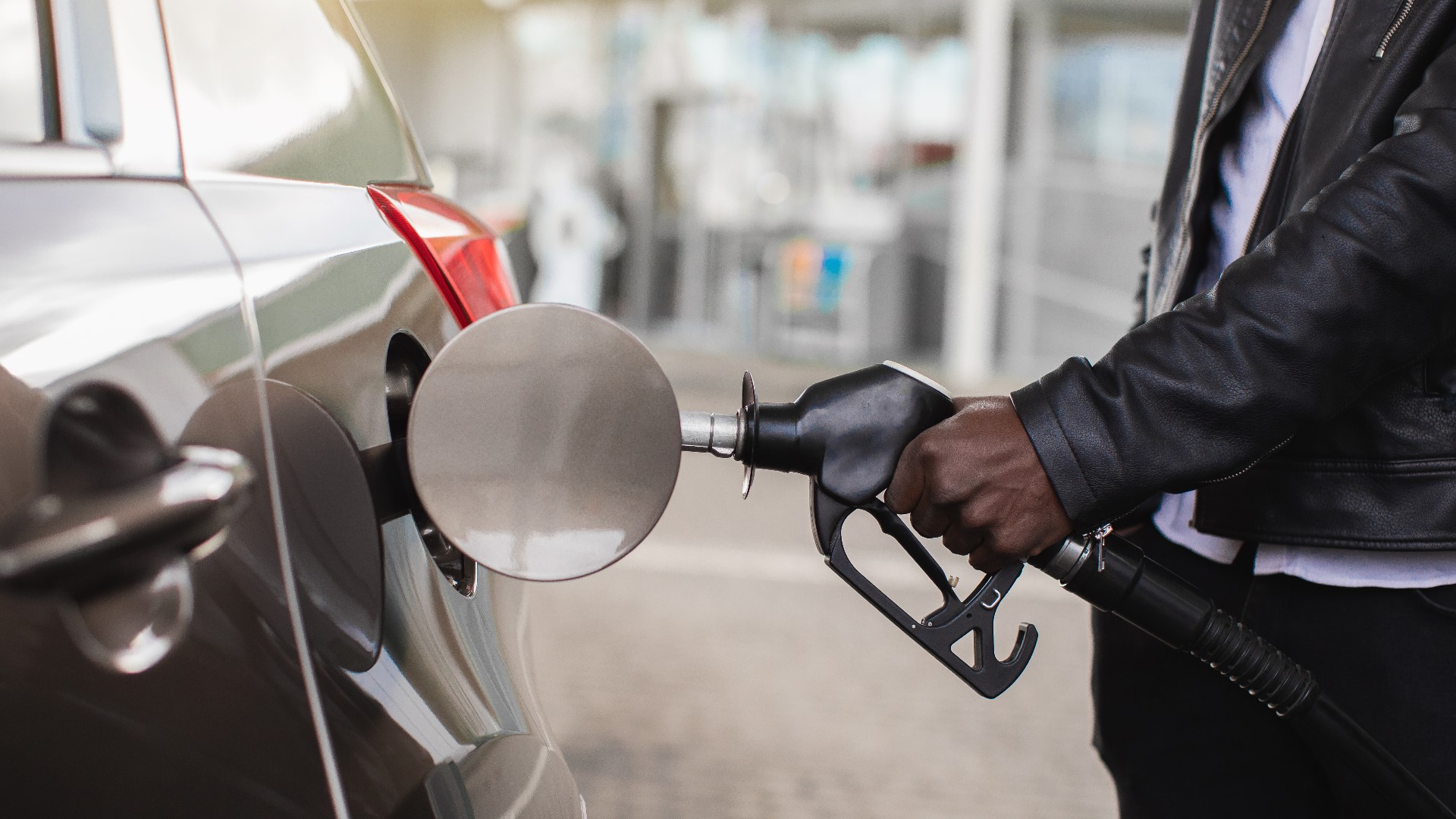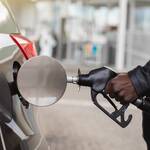President Nana Addo Dankwa Akufo-Addo says government is working to secure reliable and regular sources of affordable petroleum products for the Ghanaian market to stabilise fuel prices.
He is optimistic that this step in addition to a stable currency will halt the escalating fuel prices at the pumps, which is caused by high crude oil prices on the world market and cedi depreciation and bring relief to all Ghanaians.
The rising prices of petroleum products in the country have reduced disposable income significantly by increasing household budgets for not just fuels, but also transportation charges, vital commodities, and other goods and services.
Persons worst hit are the unemployed, underemployed and workers whose salaries and wages have not been increased at all.
Addressing the nation on measures being taken to tackle the economic crisis, the president acknowledged the difficulties Ghanaians are going through.
President Akufo-Addo said he was aware of the economic challenges occasioned by the rising cost of petroleum products, leading to increment in transport fares and price of goods and services.
“I know that the increasing cost of living is the number one concern for all of us. It is driven by fast escalating fuel prices at the pumps, which is caused by high crude oil prices on the world market and our depreciated currency. I know that this is putting intolerable pressure on families and businesses,” he said.
Negative impacts of high fuel prices
Increases in petrol and diesel costs have a direct and indirect impact on all key sectors of the economy, including agriculture, transportation, manufacturing, and production.
This, in turn, has an impact on the prices of everyday necessary commodities that are used, such as food, utilities etc.
The electricity sector has a significant influence since it requires a substantial amount of fuel to generate power.
Higher fuel prices raise freight expenses and production costs, particularly for businesses that utilize fuel as a key input and pass on the additional costs to the end consumers.
Increasing fuel prices have resulted in an increase in the amount of money motorists spend on fuel each month for the same distance travelled.
Transport operators are the most vulnerable to fuel price hikes because it is still a key input in their operation
Increases in fuel prices reduce disposable income by increasing household budgets for not just fuels, but also transportation charges, vital commodities, and other goods and services.
Currently, the highest-priced Oil Marketing Companies are selling petrol close to GH₵15 per litre while diesel is as high as GH₵18 at some filling stations.
New fuel prices are expected to take effect from November 1 and considering the rapid depreciation of the cedi during the period used for the coming pricing window, it is being projected that petrol may sell around GH₵18 per litre while diesel will go for as high as GH₵20
94% rise in the price of petrol
The ex-pump price of a litre of petrol which was GH₵6.75 in January has jumped by 94% within the first 10 months of the year and is currently selling for GH₵13.10.
136% increase in the price of diesel
In the same vein, a litre of diesel which sold for GH₵6.7667 in January recorded 136% price change between January and October 2022 and is now selling GH₵15.99 per litre.
New prices to take effect on November 1
These prices will run till the end of October and new prices will take effect from November 1, 2022 for the first pricing window.
Petrol-14 increases, 4 reductions, 1 recorded no change
Out of the 20 pricing windows in the 10 months, petrol recorded 14 increases, four price reductions and one window did not experience price change.
Diesel-14 increases, 4 reductions, 1 recorded no change
Similarly, diesel also recorded 14 price increases, four price reductions and one window did not experience price change.
Cedi slide and sharp rise in petrol and diesel prices
A significant fall in the value of the cedi against the US dollar and the sharp rise in petrol and diesel prices on the global market caused the rise in the fuel prices.
The value of the cedi has depreciated by almost 40% since the beginning of the year.
OMCs with highest-priced fuel
The figures used reflect that of Oil Marketing Companies (OMC) with the highest-priced fuel on the downstream petroleum market namely GOIL, Total and Vivo (Shell).
36% increase in FoB price of a metric tonne of petrol
Ghana imports refined products and the Free on Board (FoB) price of a metric tonne of petrol imports increased by 36% from $707.95 in January to $964.75 in October 2022.
71% increase in FoB price of a metric tonne of diesel
In the same vein, the FoB price of diesel jumped by 71% within the first 10 months from $641.38 in January to $1,097.18 in October.
January ex-pump prices
The ex-pump price per litre started the year at GH₵6.75 for petrol and GH₵6.7667 for diesel.
Petrol-GH₵6.9367 (2.77% increase), Diesel- GH₵6.95 (2.71% increase)
During the second pricing window of January 16-31, the price of petrol witnessed 2.77% increase to GH₵6.9367 while diesel went up by 2.71% to GH₵6.95.
Petrol- GH₵7.3933 (6.58% increase), Diesel- GH₵7.4267 (6.86% increase)
In the first pricing window of February 1-15, petrol recorded 6.58% increase, rising to GH₵7.3933 while diesel price also increased by 6.86% to GH₵7.4267.
Petrol- GH₵7.9533 (7.57% increase), Diesel- GH₵7.9533 (7.09% increase)
The second pricing window in February from 16-28 saw the price of petrol go up by another 7.57% to GH₵7.9533 and the price of diesel rose by 7.09% to GH₵7.9533.
Petrol- GH₵8.3933 (5.53% increase), Diesel- GH₵8.3933 (5.53% increase)
March 1-15 representing the first pricing window recorded 5.53% increase sending the price of a litre of petrol to GH₵8.3933 while the price per a litre of diesel also went up by 5.53% to GH₵8.3933.
Petrol- GH₵9.6667 (15.17% increase), Diesel- GH₵10.4933 (25.02% increase)
During the second pricing window of March (16-31), the price of a litre of petrol jumped by 15.17% to GH₵9.6667 and diesel also skyrocketed by 25.02% to hit GH₵10.4933 making a litre of diesel more expensive than petrol for the first time.
For the first pricing window of April (1-15) both petrol and diesel witnessed price decreases.
Petrol- GH₵9.3333 (3.45% decrease), Diesel- GH₵10.2433 (2.38% decrease)
The price of a litre of petrol declined by 3.45% to GH₵9.3333 and diesel also dropped by 2.38% to GH₵10.2433.
Petrol- GH₵9.35 (0.18% increase), Diesel- GH₵10.78 (5.24% increase)
The price change for the second window of April (16-30) returned to an increase with petrol going up by a marginal 0.18% to GH₵9.35 while diesel also rose by 5.24% to GH₵10.78.
Petrol- GH₵9.35 (no change), Diesel-GH₵11.2133 (4.02% increase)
In respect of May 1-15 pricing window, the price of petrol remained unchanged at GH₵9.35 but diesel witnessed 4.02% increase to GH₵11.2133.
Petrol-GH₵9.8167 (4.99% increase), Diesel-GH₵11.83 (5.5%)
During the second pricing window for May (16-31), petrol price inched up 4.99% to GH₵9.8167 while diesel rose by 5.5% to GH₵11.83 per litre.
Petrol-GH₵10.10 (2.89% increase), Diesel-GH₵12.1833 (2.99% increase)
In June, the first pricing window (1-15), recorded 2.89% increase in the price petrol to GH₵10.10 and that of diesel shot up 2.99% selling at GH₵12.1833.
Petrol-GH₵10.99 (8.81% increase), Diesel- GH₵13.4267 (10.21% increase)
For the second pricing window for June (16-30), petrol price spiked by 8.81% to sell at GH₵10.99, while diesel rose even higher by 10.21% to sell at GH₵13.4267.
Petrol-GH₵11.47 (4.37% increase), Diesel-GH₵14.1367 (5.29% increase)
In the month of July, the first pricing window (1-15), petrol went up by 4.37% to sell at GH₵11.47 and diesel also increased by 5.29% selling at GH₵14.1367.
Petrol-GH₵11.30 (1.48% decrease), Diesel-GH₵13.87 (1.89% decrease)
However, in the second pricing window (16-31) of July, petrol saw 1.48% decline to GH₵11.30 while diesel also went down by 1.89% to sell at GH₵13.87.
Petrol-GH₵10.95 (3.1% decrease), Diesel-GH₵13.26 (4.4% decrease)
During the first pricing window of August (1-15), petrol again dropped by 3.1% to GH₵10.95 and diesel fell by 4.4% to sell at GH₵13.26.
Petrol-GH₵11.15 (1.83% increase), Diesel-GH₵13.46 (1.51% increase)
In the second window, petrol rose by 1.83% to GH₵11.15 while diesel also inched up by 1.51% to GH₵13.46.
Petrol-GH₵11.55 (3.59% increase), Diesel-GH₵14.50 (7.73% increase)
The first pricing window of September recorded 3.59% increase in the price of petrol to sell at GH₵11.55 and diesel also recorded 7.73% increase to GH₵14.50.
Petrol-GH₵10.95 (5.19% decrease), Diesel-GH₵14.50 (no change)
During the second pricing window, petrol price decline by 5.19% to sell at GH₵10.95 but the price of diesel remained unchanged at GH₵14.50.
Petrol-GH₵11.10 (1.37% increase), Diesel-GH₵13.99 (3.52% decrease)
In respect of the first pricing window of October, petrol price witnessed 1.37% rise to sell at GH₵11.10 while diesel declined by 3.52% to sell for GH₵13.99.
Petrol-GH₵13.10 (18.02% increase), Diesel-GH₵15.99 (14.3% increase)
In the second pricing window of October (16-31), petrol price went up by a significant 18.02% to sell at GH₵13.10 while diesel shot up by 14.3% to GH₵15.99.
Formula for determining ex-pump prices
The price of fuel in Ghana is determined by a formula that takes into consideration the following factors such as the world market price of each petroleum product; the cost of importing or producing the product and making it available for loading to retail outlets at the storage depot (referred to as the Suppliers’ Premium); the Ghana Cedi (GHS) to US Dollar (USD) exchange rate; the taxes/levies on each petroleum product; and the distribution margins on each product.
In Ghana, there are two pricing windows in a month (1st – 15th and 16th to end of the month) within which both the Bulk Import Distribution and Export Companies (BIDECs) and Oil Marketing Companies (OMCs)/Liquefied Petroleum Gas Marketing Companies (LPGMCs) generally review the prices of petroleum products.
However, because of the bi-weekly pricing window policy practiced in Ghana, the daily prices on the world market are averaged for a two-week period and used in the pricing formula.
The world market prices and the exchange rates used in the pricing formula to determine ex-pump prices in Ghana vary for every pricing window due to the daily changes mentioned above.
- Friday, April 4, 2025 Newspaper Headlines - 4 April 2025
- Blewett: MTN CEO, a pilot, author, chartered accountant, marathon runner and many more - 3 April 2025
- MTN Ghana launches Y’ello Ladies Network - 3 April 2025

